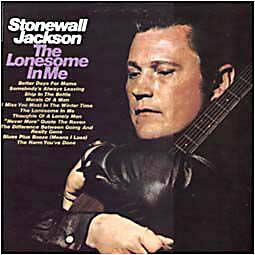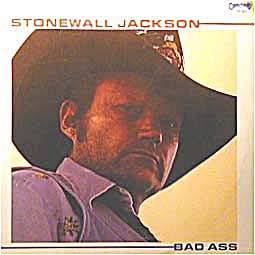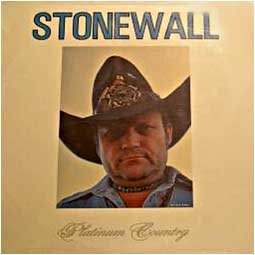


STONEWALL JACKSON
Stonewall Jackson was one of the most popular country stars of the early '60s, scoring a string of Top Ten country hits and becoming a fixture at the Grand Ole Opry with a pleading voice that seemed to reflect his hard, often abusive upbringing on a south Georgia dirt farm. He was named after the Confederate general Thomas "Stonewall" Jackson, to whom he was related according to family legend. When he was ten he traded his bike for a guitar and began making up songs. Some of his later hits, such as "Don't Be Angry," were written very early in his creative life. Jackson began singing professionally in the mid-'50s, moving to Nashville in 1956. Within a few days of his arrival he delivered an unsolicited demonstration recording to the offices of the Acuff-Rose publishing house, and executive Wesley Rose heard his recorded singing and set up an audition for Jackson at the Grand Ole Opry. He became the first entertainer to join the Opry without a recording contract, performing first on the Opry's Friday Night Frolics before his official debut.
By early 1957, Jackson had signed a recording contract with Columbia Records and cut his first record, "Don't Be Angry." Jackson followed up with a cover of George Jones' "Life to Go," which peaked at number two in early 1959. The upbeat "Waterloo," with its mixture of novelty and melancholy, did even better, spending five weeks at the top of the country charts, hitting number four on the pop charts, and garnering Jackson some national television exposure. Through the early '60s Jackson was a consistent hitmaker with such country standards as "Why I'm Walkin'" (number six, 1960), "A Wound Time Can't Erase" (number three, 1962), and "I Washed My Hands in Muddy Water" (number eight, 1965). Jackson's second number one hit, "B.J. the D.J.," arrived in early 1964. During the second half of the '60s, he reached Top 40 less often, scoring only one Top Ten hit: 1967's "Stamp Out Loneliness".
By 1970, however, Jackson wasn't even hitting the Top 40. He bounced back briefly in 1971 with a cover of Lobo's "Me and You and a Dog Named Boo." In the late 1970's, he recorded several albums ("Bad Ass" and "Platinum Country"), featuring Lloyd Green on steel guitar.


